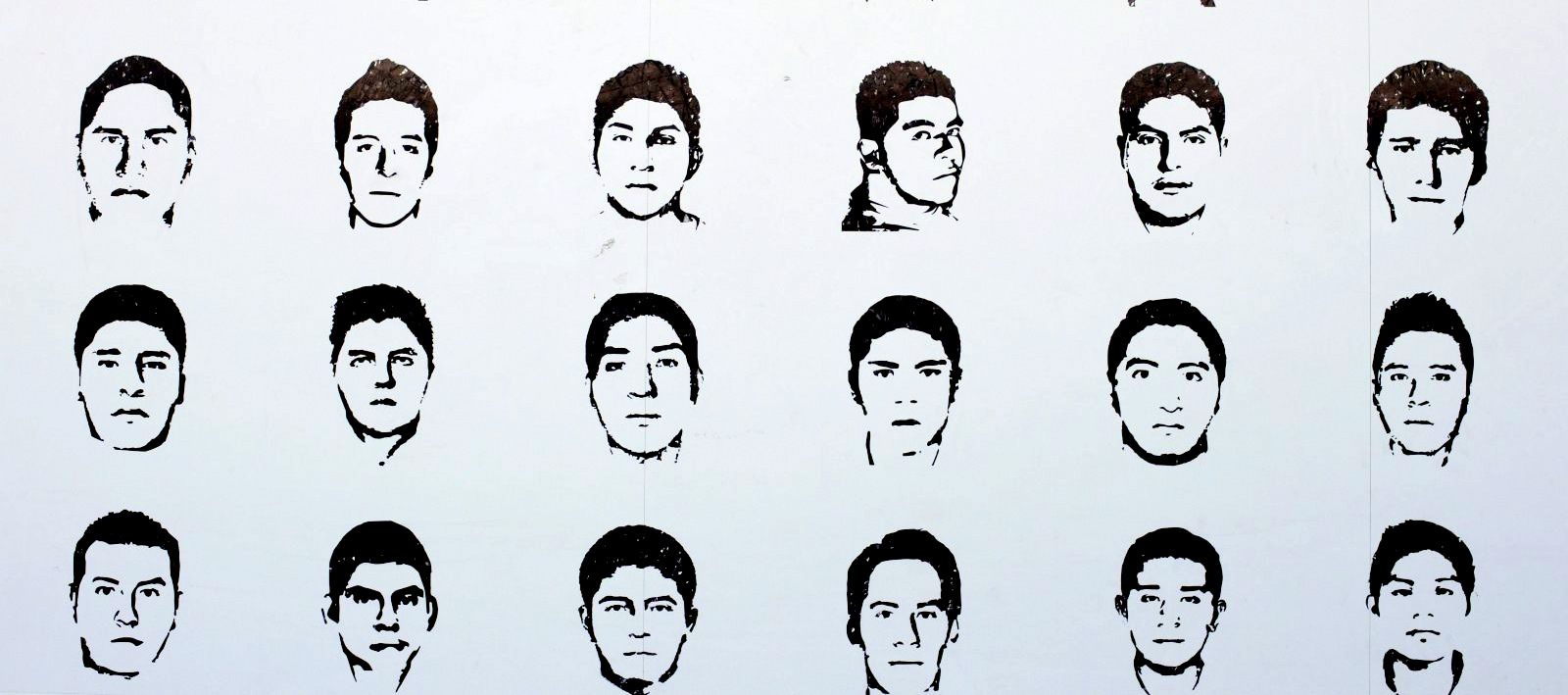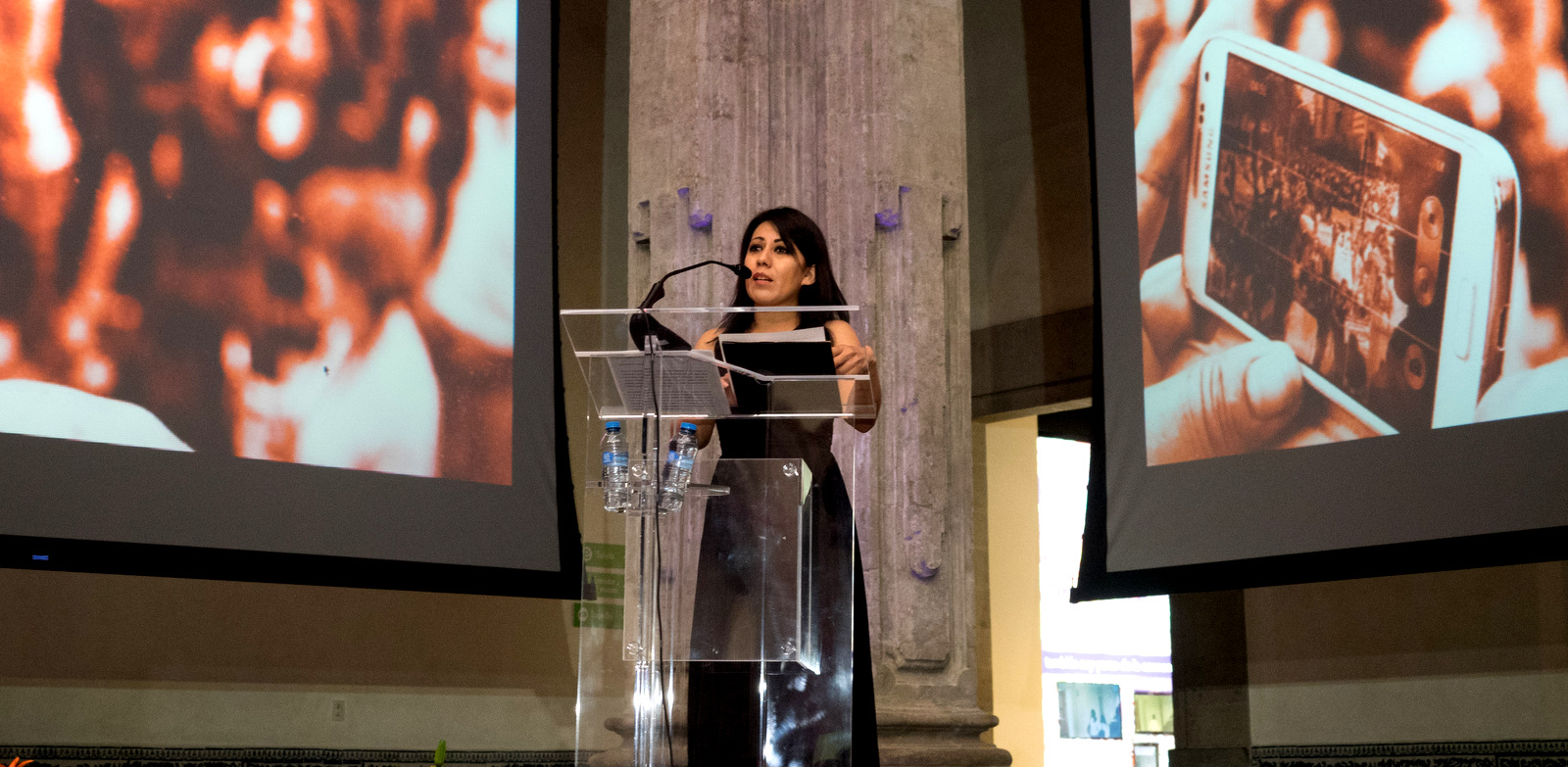MEXICO CITY — Thirty-one-year-old photojournalist Ruben Espinosa was murdered the first time in July of 2015, when he and four women were fatally shot, execution style, with a 9-millimeter handgun, inside an apartment in a middle-class neighborhood of Mexico City. Three of the women were likely in the wrong place at the wrong time; the real targets were almost certainly the human-rights activist Nadia Vera, 31, and Espinosa, both of who were implacable foes of the corrupt governor of the state of Veracruz, Javier Duarte.
In fact, Duarte — who would go on the lam after prosecutors accused him of embezzling $35 million in taxpayer money – was so enraged by the publication of one unflattering Espinosa photograph of the portly governor wearing a police cap, accompanying an article titled “Veracruz: A Lawless State,” that he tried to buy every copy of the magazine’s print run.
Espinosa was one of 42 Mexican journalists murdered during the presidency of Enrique Peña Nieto, more than in any other country in Latin America and rivaling war zones such as Syria. According to the annual report released last week by Article 19, a nonprofit dedicated to promoting freedom of expression, there were 507 documented acts of aggression against journalists in Mexico; and yet in a staggering 99.6 percent of those cases no one is punished.
The reason, to most Mexicans, is clear: five years into the government of President Enrique Peña Nieto, Mexico is, for all intents and purposes, governed by narco-politics, in which a corrupt and complicit ruling party, the PRI, has no interest in protecting the citizenry because that would be tantamount to biting the hand that feeds it.
This deliberate neglect represents the second murder of Espinosa. From the beginning, police showed little interest in solving the homicide, and an independent review found that they erred at virtually every step in the investigation, from failing to preserve the crime scene to irregularities in the autopsy. Moreover, according to Espinosa’s sister, Patricia Espinosa, law-enforcement authorities have insinuated that her brother’s recklessness was to blame for his own death and have attempted to stigmatize the women who were killed alongside him, suggesting that they were sex workers and their deaths were a result of their lifestyle.
“Prosecutors do not see us as people with dignity and rights,” Patricia Espinosa told MintPress News, adding:
They see us as yet another page in the five, ten, or twenty volumes of the dossier … They believe that the (number) of pages (in) a volume reflects the quality.”
Letters on a page

Portraits of missing students depicted on a billboard at a protest camp inside Mexico City’s main square. (Rebecca Blackwell/AP)
The state’s impunity in the murders of Espinosa, Vera, her roommates and housecleaner is reminiscent of the 43 students from Ayotzinapa Rural Teachers College, who disappeared while traveling by bus from the province of Guerrero in southwest Mexico to attend a demonstration in Mexico City in September of 2014. Prosecutors maintain that a notorious drug cartel kidnapped and killed the students, and then incinerated their corpses in a local dump site, but witnesses and evidence suggest a scenario in which both local and federal police are responsible for the massacre.
A report released last week by the Office of the United Nations High Commissioner for Human Rights in Mexico found that torture was used by the state to interrogate suspects in the Ayotzinapa case, which helped to undermine the investigation’s conclusions.
For the families of the missing students, the report served to confirm what they already suspected.
“These people were forced to declare what their torturers wanted to hear and not the truth,” said Mario González, father of one of the disappeared students.
Entitled “Double Injustice,” the report identified several human rights abuses – including arbitrary detention, lack of due process, and torture – committed throughout the investigation, and even found that an investigation into human rights violations was stymied by an abrupt change in managerial personnel. The report concluded:
To the extent that the acts of torture and other human rights violations committed are not investigated and sanctioned, and the evidence obtained under torture is not excluded, not only are the rights of the accused affected but the right to the truth and justice of the victims of the events that took place on the night of September 26-27, 2014 are also affected.”
For Patricia Espinosa, the country is in the midst of a human rights crisis in which the state is “complicit” and, without the political will to enforce legally guaranteed protections, the rights of Mexicans under the current regime are “just letters on a page, without any value.”
A case in point is Congressional passage of the Law for the Protection of Defenders of Human Rights and Journalists six years ago. A fine law on paper, but attacks against journalists have continued unabated.
This year is already off to an inauspicious start. On March 21, Leobardo Vazquez Atzin, a reporter with La Opinión was shot dead, making him the third journalist slain so far in 2018. According to local reports, Vazquez had been the subject of threats from a mayor in the state of Veracruz.
Read more by José Luis Granados Ceja
- Under the Shadow of Violence and Repression, Mexican Women March for a Change to the System
- Honduras: Arrest in Caceres Murder a Feeble Attempt at Image Rehab
Contrary to politicians’ assertions, recent trends suggest that the state, and not the drug cartels, is now the prime purveyor of violence and abuse against journalists.
According to Article 19, nearly half — about 48 percent — of the 1,986 acts of aggression against journalists since 2013 were carried out by the public officials, mostly law-enforcement and the armed forces.
“The lines become more and more blurred,” said Ana Cristina Ruelas, director of Article 19 in Mexico and Central America. “In the majority of cases, narco-politics makes it impossible to differentiate between organized crime and public servants.”
Despite a number of independent investigations that debunk the government’s version of the Ayotzinapa disappearances, the government of Peña Nieto insists it played no role in the crime.
The offshoot of a narco-political state is a government whose chief function is to manage its public image. To respond to growing public concerns about transparency, legislators passed a bill granting greater autonomy to the institution tasked with guaranteeing public access to information and renamed it the Federal Institute for Access to Public Information and Data Protection, or IFAI.
Recently, however, one of the IFAI’s six commissioners, Ximena Puente, announced her candidacy for a Congress seat as a member of the ruling PRI, raising concerns about politicization of the regulatory agency.
In its report, Article 19 also called on the state to act swiftly to bring spending on government publicity under control. The federal government, in particular, spent approximately $2 billion on publicity during a five-year period from January 2013 to December 2017.
The situation is such that the Supreme Court of Justice took the unusual step of ordering the Congress to approve a law regulating government publicity by April 30, 2018.
The government’s public relations campaign muffles the cries for justice

Patricia Espinosa, the sister of slain photojournalist Ruben Espinosa, details her experiences confronting Mexico’s institutions in her pursuit of justice for her brother at an event held by Article 19 on the occasion of the release of its annual report, Mexico City, March 20, 2018. (José Luis Granados Ceja/MintPress News)
“The government of Enrique Peña Nieto is unwilling to shoulder the political costs of its lie,” said Mario Patron, director of the Miguel Agustin Pro Juarez Human Rights Center, at an event addressing the psychosocial impacts on the victims in the Ayotzinapa case.
As a result, families of victims of this narco-political administration are left yearning for justice.
At a recent event organized by Article 19, Patricia Espinosa spoke of her slain brother and the toll his absence, and his unsolved murder, have taken on her family. She concluded by reading from a letter to Ruben that her young daughter recently wrote.
I miss you a lot. After almost three years, I still miss you as if it were yesterday. You were a fantastic, exemplary, humble uncle; simply put, you were a super incredible person. I want to tell you that I am doing really well in school, I am trying very hard and one of the many reasons for that is you. Because I know that you always wanted all four of us to complete our studies. Cosmos is doing well. He is a hyper cool dog, and an important part of our family. I also want to tell you that soon I will start exercising and I promise to try very hard at everything and not to talk back much.
I love you. I miss you.”
Top Photo | Journalists gather around a photo of slain photojournalist Ruben Espinosa, placed by his relatives at the entrance of Mexico City’s Attorney General’s office, on the second year anniversary of his murder in Mexico City, Monday, July 31, 2017. Espinosa worked for the investigative magazine Proceso and other media in the Mexican state of Veracruz, and murdered along with four women in an apartment in Mexico City on July 31, 2015. (AP/Marco Ugarte)
José Luis Granados Ceja is a writer and photojournalist based in Mexico City. He has previously written for outlets such as teleSUR and the Two Row Times and has also worked in radio as a host and producer. He specializes in contemporary political analysis and the role of media in influencing the public. He is particularly interested in covering the work of social movements and labor unions throughout Latin America.
The post Human Rights in Mexico, From Crisis to Catastrophe appeared first on MintPress News.
